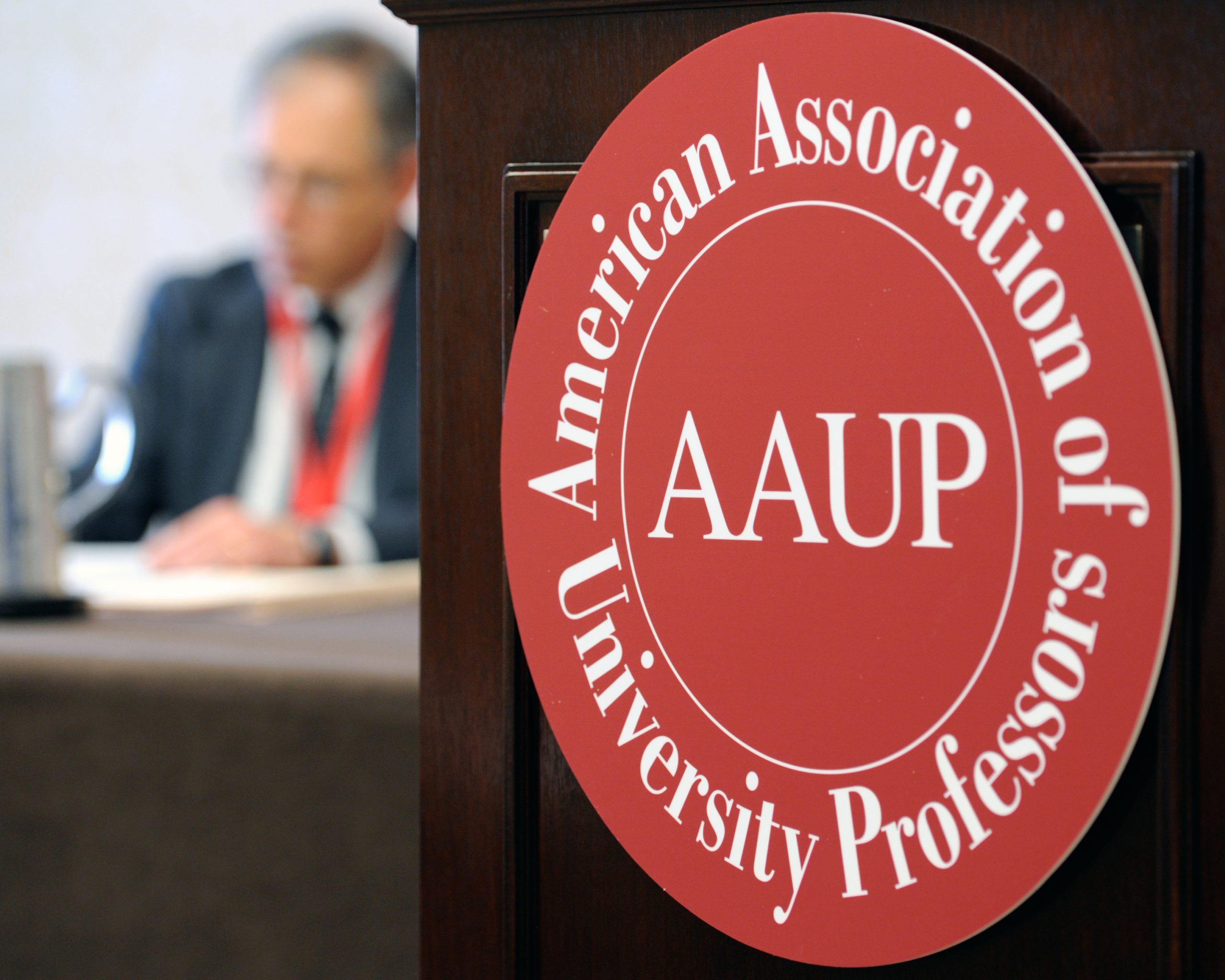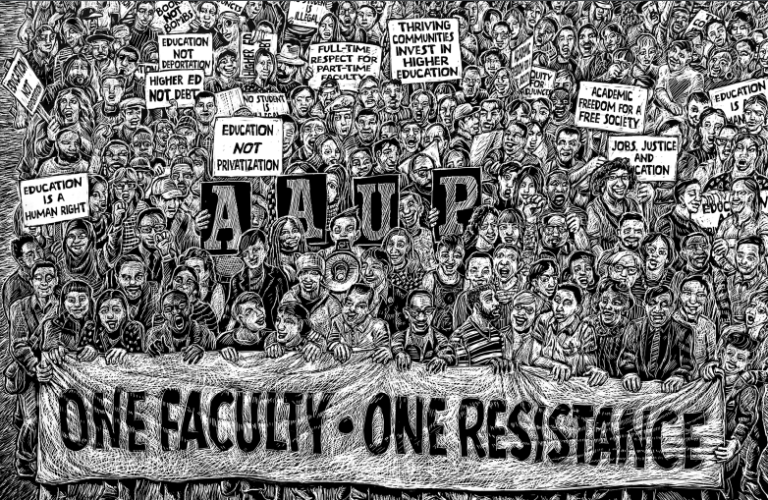Gerry Turkel Retires, Leaves Behind Words of Wisdom
Gerry Turkel has been one of the longest-serving, most dedicated members of the AAUP-UD. Having retired this fall, Gerry was feted by friends, family, and colleagues at a reception in his honor on November 1. Deni Galileo, AAUP-UD President, presented Gerry with a plaque in appreciation for his many years of service (see above). A few days later, Gerry kindly agreed to sit for an interview about his time in the AAUP-UD and share his thoughts about future issues facing faculty both at UD and throughout the nation. The interview recorded below has been edited slightly for length and clarity.
1) What prompted you to join the AAUP-UD?
When I first came to UD in 1975, I was not aware that the faculty was unionized. When one of my colleagues asked me to be a member, I was thrilled. I had been active as a member of the United Federation of Teachers when I taught in public school in New York City before I went back to graduate school full time. I’ve always thought that unions are essential for democracy at the national and state levels. They also play an essential role in representing working people, including faculty, when it comes to issues that are crucial to their lives.
2) What reasons would you give nonmembers for joining the AAUP-UD?
Here are the major ones. The most compelling is that through collective bargaining with university administration, the AAUP-UD secures the salary, benefits, health and dental insurance, and retirement benefits of the faculty. So, the fundamental conditions of being paid, having benefits, and being able to look forward to retirement depend upon the AAUP’s power to negotiate with administration. The stronger the AAUP-UD membership, the greater that power becomes. The AAUP-UD also has the power to secure the policies that protect the promotion of faculty through the academic ranks, that protect the tenure of TT faculty, and that protect the rights of CT faculty. On the latter point, the entire CT policy was one initiated by the AAUP-UD, which then successfully negotiated for a provision in the collective bargaining agreement to protect CT faculty. This provision gives the AAUP-UD power over any change in policy that would affect the working conditions of CT faculty. So, for tenured, tenure track, and CT faculty, the policies in which they live are secured and made real by the AAUP-UD. Finally, the AAUP is dedicated to the values of academic life—academic freedom, the right of faculty to teach and engage in research that they want to pursue, and to speak publicly—all that is supported by the CBA and is jealously guarded by the leadership of our chapter. I’ve always been encouraged that many faculty members have voluntarily joined and supported the AAUP-UD. For those who haven’t, I encourage them to pause and reflect on how the AAUP-UD has strengthened their professional lives.
3) What are some of the AAUP-UD’s accomplishments of which you’re most proud?
The current CT policy is one that we should all be really proud of. The AAUP played a leadership role in developing that policy, which also received support from enlightened administrators. UD now has one of the most rigorous policies for nontenured faculty members in the country. Also, the benefits that faculty have–health, dental, retirement, for example—are very strong. The AAUP-UD has fought hard and will continue to fight hard for these benefits. It’s very important for faculty to recognize what a great accomplishment these benefits are, and that they should not take them for granted. Rather, faculty need to strongly support the AAUP-UD, particularly as it negotiates for future benefits in the collective bargaining process. Another accomplishment that I’m proud of is that we at the AAUP-UD have built very good relationships with the academic administration at the university. Our approach has been to try to work with the administration, to try to be collaborative in our efforts, and I think that that collaboration has led to the prominence of UD both as an institution of research and scholarship and also as one that is recognized as a great place for undergraduates and graduates to pursue their educations.
4) Has the role of the AAUP-UD changed over the years that you’ve been a member?
UD has become a much more complex institution in terms of its size and scale and its development of new academic programs. Also, with the decline of state funding, UD has become more oriented toward business practices, more corporate in its orientation, as has been the case with public universities across the US. For example, UD now has a much more highly developed legal department and a much more bureaucratic approach to HR issues than it used to have. From the vantage point of the AAUP-UD, we’re working in a much more complex and somewhat more impersonal environment than we were 20-25 years ago. These are real challenges that AAUP-UD leadership has to face that we didn’t have to years ago.
5) What do you think the biggest issue facing UD faculty members will be in the next few years?
A big issue will be to address what academic freedom means today. What does the freedom to teach, engage in research, speak publicly, and participate in shared governance mean in the contemporary conditions of UD, given the increasingly corporate nature of the university? What does academic freedom mean in the face of increasing efforts to measure the quality of teaching and research in ever more refined ways? What does it mean in terms of a shared governance structure where there’s a greater division between the academic and business sides of the university? There are some really serious questions and challenges that UD faculty and faculty across the nation have to face. We’re in a very new era. We really do have to think about how we’ll guard our values in these new circumstances.





